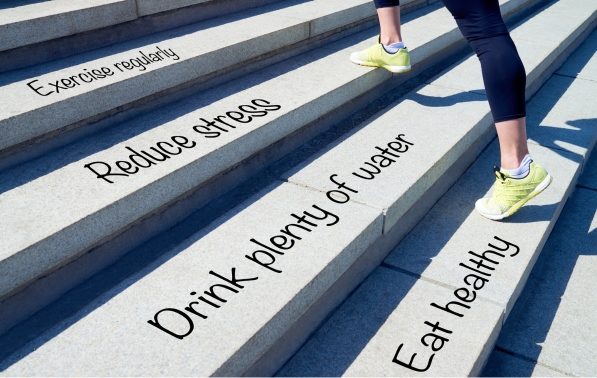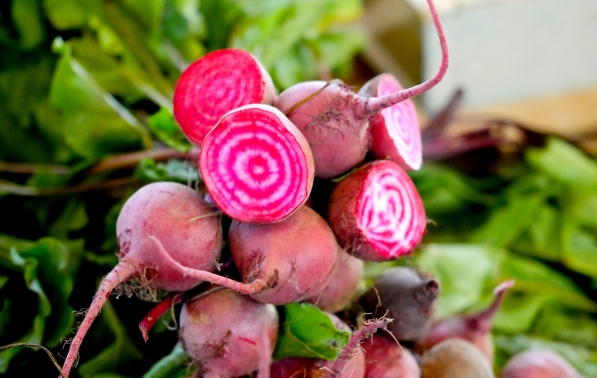Research Report: Stress Impact on the Body
June 13, 2024 | 0 comments
by Wendy Wilson
The ways stress can manifest within the body are broad and deep. Fortunately, there are simple ways to support our body’s natural stress response.
We can agree that stress is more common than ever. It’s like another weight has been added to life’s barbell, and we struggle to lift it. Fortunately, there are simple ways to support our body’s natural stress response. But first, understanding what stress is doing to the body offers insight into our different approaches.
COMPREHENSIVE STRESS EFFECT
In March 2023, The American Psychological Association reported on how stress can affect all areas of the human body. The ways stress can manifest within the body are broad and deep. Beyond physical clues, stress also affects our mood, as reported by the National Library of Medicine Center for Biotechnology in May 2022.
Stress may affect the following systems:
- Musculoskeletal
- Respiratory
- Cardiovascular
- Endocrine
- Gastrointestinal
- Nervous
- Reproductive
Here are some of the stress effects that occur on these systems:
- Musculoskeletal – tense muscles are a temporary reflex reaction to stress to guard against injury. When stressed, our muscles may stay in a tighter, constricted state. You might recognize this in your body via occasional headaches or muscle cramping and discomfort.
- Respiratory – stress can produce shortness of breath and rapid breathing. This is one of the many reasons deep breathing exercises may be supportive if you’re experiencing a momentarily stressful situation, like a traffic jam or an argument with a coworker.
- Cardiovascular – the heart and blood vessels can also be affected by stress. For a healthy heart, it’s essential to remove as many stressors from your daily life as possible and to adapt healthy lifestyle practices, like gentle exercise and deep breathing. Postmenopausal women, especially, need extra support for a healthy heart.
- Endocrine —stress can also affect the endocrine system and our hormones. You may experience this in your body by feeling tired, having unbalanced blood sugar levels, or experiencing occasional weight gain and mood swings.
- Gastrointestinal – the gut is in constant chemical communication with the brain. Stress can interfere with this communication and your gut flora's health, causing occasional discomfort, bloating, mood changes, a change in appetite, and general digestive upset.
- Nervous —The nervous system includes the brain, central nervous system, spinal cord, and peripheral nerves. Under stress, the body may shift energy resources, especially during the “fight or flight” response. The nervous system signals for hormone release, such as adrenaline and cortisol, to direct actions to the body's systems. With time, this may drain the body and cause general wear and tear.
HERBS FOR STRESS
Most adults know that quality sleep, a wholesome diet, regular exercise, and healthy relationships help to soothe occasional stress. Seeing how stress can negatively affect your health, it’s worth identifying a handful of daily activities to naturally support your body’s stress response. Everyone is different, but you may choose to take a short walk after every meal, practice deep breathing in stressful moments, or drink a soothing tea before bed.
Fortunately, many widely available herbs can also support your body’s natural stress response. As an herbalist, I’ve found comfort in many of these herbs.
Lobelia (Lobelia inflata)
This violet-blue flower is native to Canada as well as some Eastern and north-central areas of the United States. Herbalists use the aerial portions (leaf and flower), seeds, and roots in moderation, as they can be potent. Lobelia is considered an at-risk herb by the non-profit United Plant Savers, so it’s always best to seek cultivated lobelia products from sustainably-minded brands, or you can try growing your own!
Lobelia has been used for many purposes over the years, but I find it especially helpful for easing muscle tension throughout the body. If stress manifests in your body as occasionally tight muscles or headaches, see our Relaxation Formula, which contains lobelia, for additional support.*
"Your Relaxation Formula really works. Best sleep ever!" Donna McCullough, Homosassa, FL
*Because of its potency, lobelia is best taken in the short term. Do not take lobelia if you’re pregnant or nursing, and it’s not recommended for children and the elderly.
Valerian (Valeriana officinalis)
This leafy green perennial produces pale pink-white flowers and is native to Europe and parts of Asia. Herbalists most often use the root in formulas.
For centuries, valerian has been used as a natural relaxant, a mild sedative, and a sleep aid. It’s incredibly supportive for anyone whose mood or sleep schedule is affected by daily stressors. As an antispasmodic, valerian can also soothe muscle discomfort and cramping. Valerian is the star ingredient in our Valerian Root.*
"The Valerian root tincture is a thumbs up!" David Falconi, Hubbard, OH
Stress is unavoidable in modern life. Fortunately, we can support our body's natural response to stress by recognizing the signs of stress and weaving supportive practices like deep breathing, gentle exercise, and beneficial herbs into our daily routines.
Herbs such as lobelia and valerian offer additional support, helping to ease muscle tension and encourage relaxation.* Remember, small, consistent actions can make a big difference in our well-being. So, take a moment to breathe deeply, enjoy a calming tea, and give yourself the gift of a stress-free moment. Your body and mind will thank you.
REFERENCES:
https://www.ncbi.nlm.nih.gov/pmc/articles/PMC9138975/
https://www.apa.org/topics/stress/body
https://www.sciencedaily.com/releases/2024/05/240524171234.htm
https://www.sciencedaily.com/releases/2007/03/070314195638.h...
https://www.sciencedaily.com/releases/2009/06/090617154401.h...
https://www.sciencedaily.com/releases/2016/04/160418095151.h...
*This statement has not been evaluated by the Food and Drug Administration. This product is not intended to diagnose, treat, cure, or prevent any disease. Seek medical advice from a licensed medical physician before using any product or therapy.*



